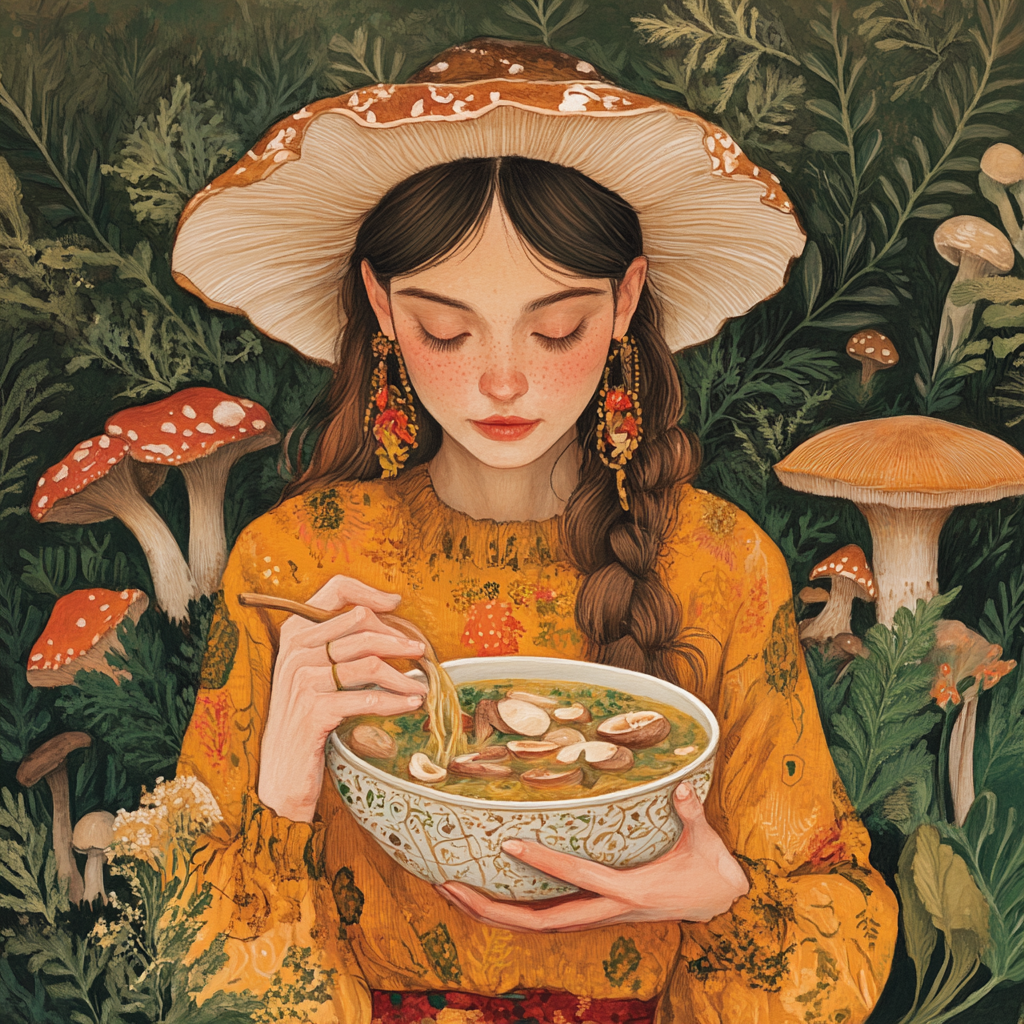
The Link Between Mushrooms and Longevity in Blue Zones: Nature's Hidden Superfood
|
|
Time to read 8 min
|
|
Time to read 8 min
Hey there, fellow health enthusiasts! Today, I'm excited to dive into a topic that's been fascinating me lately – the connection between mushrooms and longevity in Blue Zones. As someone who's always on the lookout for natural ways to boost health and extend lifespan, I couldn't help but be intrigued by the role these humble fungi play in some of the world's healthiest communities.
Why you can trust us:
We have been growing mushrooms for 5 years
Our mushrooms are served in over 50 restaurants and our mushroom grow kits are trusted and used by other mushroom farmers across the Southeast.
We rigorously study the latest in mushroom growing trends, practices, and science
Want to grow your own? Visit our store
Before we delve into the mushroom magic, let’s quickly recap what Blue Zones are. These regions around the world are known for their high concentration of centenarians and low rates of chronic diseases. The term was coined by Dan Buettner, a National Geographic fellow who identified five such areas:
What’s fascinating about these places is that despite their geographical differences, they share some common lifestyle factors—including their diets rich in mushrooms and longevity-promoting foods.
Further Readings
→ Turkey Tail Mushroom for Dogs – Nature's Answer to Canine Wellness
Now, you might be wondering, “What’s so special about mushrooms?” Well, buckle up because we’re about to embark on a fungi-filled journey of discovery!
First things first, mushrooms are absolute nutrient powerhouses. They’re packed with vitamins, minerals, and antioxidants that support overall health and longevity. Some key nutrients include:
These nutrients work together to combat oxidative stress, which is a major contributor to aging and age-related diseases. Thus, incorporating mushrooms and longevity into your diet can significantly enhance your longevity.
Books For Yoga Beginners
Of all the Blue Zones, Okinawa stands out for its mushroom consumption. The Okinawan diet includes a variety of mushrooms, with shiitake being particularly popular. These smoky-flavored fungi are often used in miso soups and stir-fries, adding both flavor and nutrition to daily meals.But shiitake isn’t the only star of the show. Okinawans also regularly consume other mushroom varieties that contribute to their longevity:
Each of these mushrooms brings its unique set of health benefits to the table, contributing to the overall longevity-promoting diet of Okinawa.
"In the quest for longevity, mushrooms emerge as nature's hidden superfood, offering a wealth of nutrients that may hold the key to a longer, healthier life."
Now, I know what you’re thinking—“This all sounds great, but where’s the scientific evidence?” Well, I’m glad you asked! Recent research has been shedding light on the potential longevity-boosting effects of mushrooms.
Remember ergothioneine? This unique antioxidant might be a key player in the connection between mushrooms and longevity. Some researchers have even dubbed it the "longevity vitamin."
A study conducted in Singapore found that as people age, the ergothioneine content in their blood decreases, correlating with cognitive decline. This has led researchers to speculate that a dietary deficiency in ergothioneine might predispose individuals to neurological diseases.
"Mushrooms are not just culinary delights; they are nutritional powerhouses that play a vital role in promoting health and longevity, especially in Blue Zones."
Speaking of brain health, a large-scale study in Japan involving over 13,000 elderly people found that those who consumed more mushrooms had a lower incidence of dementia. While the study didn’t specifically look at ergothioneine, it’s not hard to connect the dots regarding how mushrooms can contribute to longevity.
Chronic inflammation is a major contributor to aging and age-related diseases. Guess what? Mushrooms have potent anti-inflammatory properties! The compounds in mushrooms—particularly beta-glucans—have been shown to modulate the immune system and reduce inflammation.
Further Readings
→ Turkey Tail Mushroom for Dogs – Nature's Answer to Canine Wellness
Alright, I’ve hopefully convinced you of the amazing potential of mushrooms and longevity. But how can you start reaping these benefits? Here are some ideas to get more mushrooms into your diet:
Remember, variety is key! Each type of mushroom offers its own unique set of nutrients that can enhance your health and support longevity.
"So here’s to mushrooms—may they help us all live long and prosper!"
As we’ve explored today, the link between mushrooms and longevity in Blue Zones is a fascinating area of study. From their impressive nutrient profiles to their potential cognitive benefits, mushrooms truly seem to be nature’s hidden superfood.While incorporating more mushrooms into your diet isn’t a guarantee of longevity, it’s certainly a delicious and nutritious step in the right direction.
So why not take a leaf (or should I say cap?) out of the Blue Zones’ book and make mushrooms a regular part of your meals?Remember, longevity isn’t just about living longer—it’s about living better. If the Blue Zones have taught us anything, it’s that a diet rich in natural foods like mushrooms can contribute significantly to a longer and healthier life.
If you want to grow your own mushrooms, you can check out more on our store
Products Featured In This Blog
Blue Zones are regions around the world where people live significantly longer, often reaching age 100 in good health. They include places like Okinawa, Japan, and Sardinia, Italy.
Mushrooms are nutrient-dense, containing antioxidants, vitamins, and minerals that combat oxidative stress and inflammation, which are linked to aging and chronic diseases.
Varieties such as shiitake, maitake, enoki, and shimeji mushrooms are particularly beneficial due to their high nutrient content and health-promoting properties.
Mushrooms are rich in selenium, vitamin D, ergothioneine, and glutathione—compounds that support immune function and reduce oxidative stress.

30
45
8
soup
This recipe is a modern nutritional adaptation of traditional European mushroom soups, but using Japanese cuisine's emphasis on medicinal mushrooms.
This soup is rich in:
For context:
Timelapse of Oyster Mushrooms growing.
Oyster myshrooms are rich in Ergothioneine.






